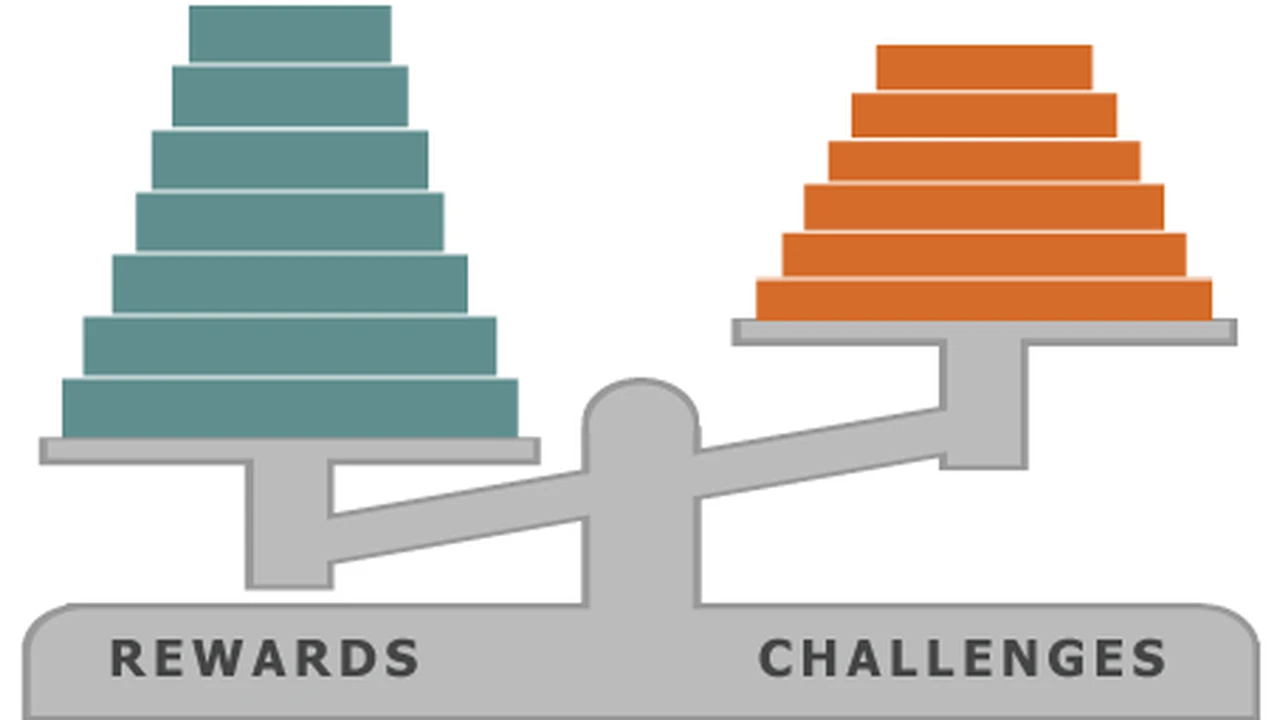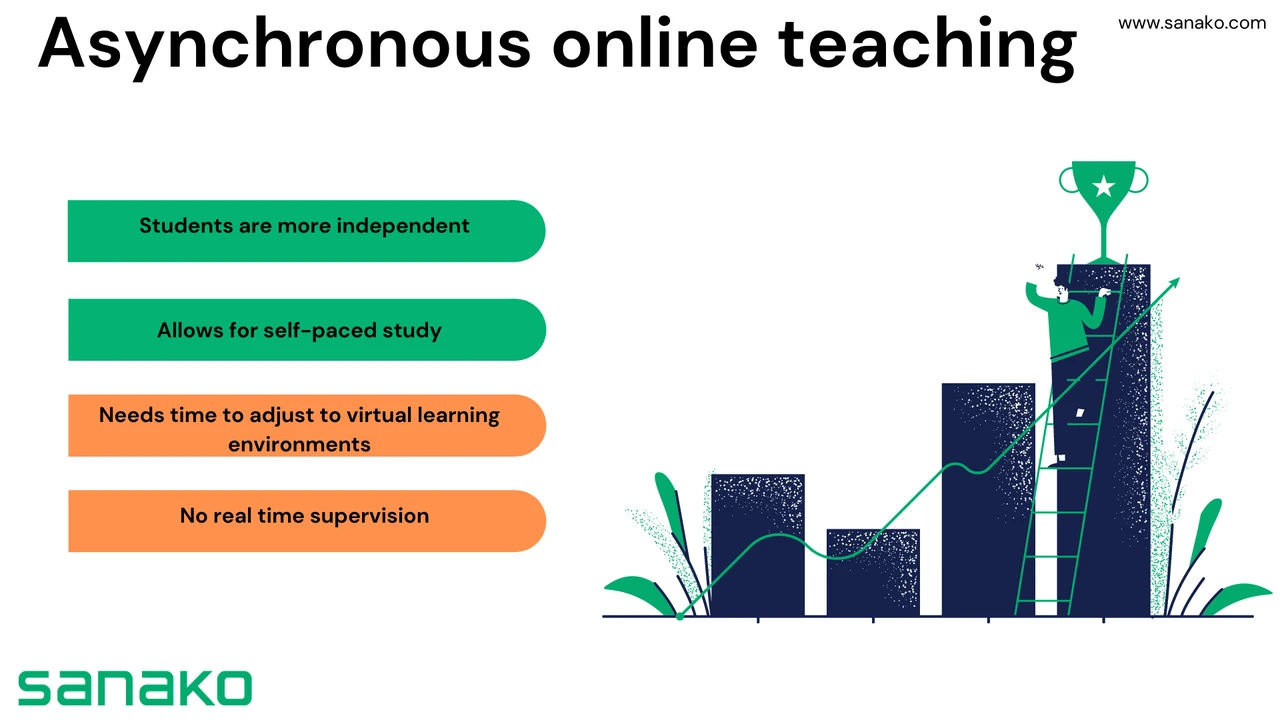Are Online Certifications from Top Platforms Recognized by Employers
Find out if online certifications from leading platforms are recognized by employers. Boost your resume with credible online credentials.

Are Online Certifications from Top Platforms Recognized by Employers
Find out if online certifications from leading platforms are recognized by employers. Boost your resume with credible online credentials.
Hey there, future-proof learner! Ever wondered if those shiny online certifications you're eyeing actually hold weight with employers? It's a super common question, and honestly, the answer isn't a simple yes or no. It's more like, 'it depends,' but in a really good way! In today's fast-paced job market, traditional degrees are still valuable, but online certifications are rapidly gaining traction as powerful tools for skill development and career advancement. Let's dive deep into whether these digital badges can truly boost your resume and get you noticed by the right people.
The Shifting Landscape of Hiring and Skill Validation
Think about it: the world of work is changing at lightning speed. New technologies emerge daily, and job roles evolve constantly. This means employers are increasingly looking for candidates who can demonstrate specific, up-to-date skills, rather than just a general academic background. This is where online certifications shine. They offer focused, practical training in high-demand areas, allowing you to quickly acquire and validate skills that are immediately applicable in the workplace.
Why Employers Value Online Certifications Key Benefits for Hiring Managers
So, why are more and more employers giving a nod to online certifications? It boils down to a few key benefits:
- Demonstrated Specific Skills: Unlike a broad degree, a certification often proves proficiency in a very particular area, like 'Python for Data Science' or 'Google Ads Fundamentals.' This makes it easier for hiring managers to see if you have the exact skills they need.
- Commitment to Continuous Learning: Earning certifications shows initiative and a willingness to keep learning and adapting, which are highly valued traits in any employee. It tells them you're proactive about staying relevant.
- Cost-Effective Training: For employers, hiring someone with pre-existing certified skills can reduce their training costs and ramp-up time. You're ready to hit the ground running.
- Industry Relevance: Many top online platforms partner with industry leaders to create their courses, ensuring the content is current and relevant to real-world job requirements.
- Proof of Practical Application: Often, these certifications involve projects or assessments that require you to apply what you've learned, providing tangible proof of your abilities.
Top Online Platforms and Their Employer Recognition Status Leading Credential Providers
Now, let's get to the nitty-gritty: which platforms offer certifications that truly resonate with employers? Not all certifications are created equal, and the reputation of the issuing platform plays a huge role. Here are some of the heavy hitters:
Coursera Professional Certificates and Specializations Industry-Recognized Learning
Coursera is a giant in the online learning space, known for partnering with top universities and companies. Their 'Professional Certificates' and 'Specializations' are particularly well-regarded. These aren't just random courses; they're often designed in collaboration with industry leaders to prepare you for specific job roles. For example:
- Google IT Support Professional Certificate: This certificate is a game-changer for anyone looking to enter the IT field. It's developed by Google themselves and covers everything from troubleshooting to customer service. Many employers actively look for this credential.
- IBM Data Science Professional Certificate: Another highly respected program, this one from IBM, equips you with the skills needed for a data science career, including Python, SQL, and machine learning.
- Meta Social Media Marketing Professional Certificate: Developed by Meta (Facebook's parent company), this certificate is excellent for those aiming for roles in digital marketing, focusing on social media strategies.
Why employers recognize Coursera: The direct involvement of reputable universities and global companies lends immense credibility. They know the content is high-quality and up-to-date. Many programs also include hands-on projects, which are great for portfolios.
Typical Cost: Coursera operates on a subscription model for Specializations and Professional Certificates, often around $39-$79 per month. Some individual courses can be purchased outright. Financial aid is often available.
Use Case: Ideal for career changers, those looking to upskill in a specific domain, or recent graduates wanting to add practical, industry-specific skills to their resume.
edX MicroBachelors and MicroMasters Programs University-Backed Credentials
Similar to Coursera, edX collaborates with leading universities worldwide. Their 'MicroBachelors' and 'MicroMasters' programs are particularly noteworthy. These are essentially university-level courses broken down into smaller, stackable credentials. They can even count towards a full degree in some cases.
- MITx MicroMasters Program in Supply Chain Management: This program from MIT is incredibly rigorous and highly valued in logistics and supply chain industries.
- Arizona State University MicroBachelors Program in Computer Science Fundamentals: A great entry point for those considering a computer science career, offering foundational knowledge from a respected university.
Why employers recognize edX: The direct university affiliation is a huge plus. Employers trust the academic rigor and quality control associated with these institutions. The 'stackable' nature also appeals, showing a structured learning path.
Typical Cost: MicroBachelors and MicroMasters programs can range from $500 to $1,500 or more per program, depending on the university and length. Individual verified certificates are usually $50-$300.
Use Case: Excellent for individuals seeking university-level education without the full commitment of a degree, or those looking to gain advanced knowledge in a specific field with academic backing.
Udemy and Skillshare Practical Skill Development and Portfolio Building
Udemy and Skillshare operate on a slightly different model, focusing more on practical, project-based learning taught by industry experts. While they might not have the same university backing as Coursera or edX, their value lies in the sheer breadth of practical skills you can acquire and the ability to build a strong portfolio.
- Udemy: Offers thousands of courses on almost any topic imaginable, from web development to photography. Look for courses with high ratings and a large number of students. For example, 'The Complete Python Bootcamp From Zero to Hero in Python' is incredibly popular and well-regarded for practical coding skills.
- Skillshare: Focuses heavily on creative skills like graphic design, illustration, video editing, and marketing. Many courses are project-based, allowing you to build a portfolio as you learn. For instance, a course on 'Adobe Illustrator CC – Essentials Training' can directly lead to portfolio pieces.
Why employers recognize Udemy/Skillshare: While less formal, employers value the practical skills gained. The key here is to not just list the certification, but to showcase the projects you completed. A strong portfolio built from these courses speaks volumes.
Typical Cost: Udemy courses are often purchased individually, ranging from $10-$200 (frequent sales make them very affordable). Skillshare is a subscription service, typically around $15-$32 per month or $99-$168 annually.
Use Case: Perfect for acquiring niche skills, exploring new interests, or building a portfolio of practical work, especially in creative or technical fields. Great for self-starters who can demonstrate their learning through projects.
LinkedIn Learning Professional Development and Networking Integration
LinkedIn Learning (formerly Lynda.com) is unique because it's integrated directly with LinkedIn, the world's largest professional networking site. This integration is a huge advantage for visibility.
- Certificates of Completion: While not always 'certifications' in the traditional sense, completing a learning path or course on LinkedIn Learning allows you to add a badge directly to your LinkedIn profile. This instantly signals to recruiters that you've acquired specific skills.
- Learning Paths: LinkedIn Learning offers curated 'Learning Paths' that combine multiple courses to help you master a specific skill set, like 'Become a Project Manager' or 'Become a Data Analyst.'
Why employers recognize LinkedIn Learning: Its direct integration with LinkedIn means your achievements are immediately visible to potential employers who are already scouting talent on the platform. The content is also generally high-quality and business-focused.
Typical Cost: LinkedIn Learning is a subscription service, usually around $29.99 per month or $19.99 per month when billed annually. Many LinkedIn Premium subscriptions include access.
Use Case: Excellent for professionals looking to quickly add new skills to their LinkedIn profile, enhance their existing professional capabilities, and stay competitive in their current roles or seek promotions.
Specialized Platforms and Vendor Certifications Niche Expertise and Industry Standards
Beyond the general online learning platforms, there are numerous specialized platforms and vendor-specific certifications that are incredibly valuable, especially in tech and IT. These are often considered industry standards.
- AWS Certifications (Amazon Web Services): If you're in cloud computing, an AWS certification (e.g., AWS Certified Solutions Architect) is almost a prerequisite for many roles. These are highly rigorous and universally recognized in the cloud industry.
- Microsoft Certifications: From Azure to Microsoft 365, Microsoft offers a wide range of certifications that validate expertise in their products and technologies.
- CompTIA Certifications: CompTIA offers vendor-neutral certifications like A+, Network+, and Security+ that are foundational for many IT careers and widely recognized.
- HubSpot Academy: For inbound marketing, sales, and customer service, HubSpot Academy offers free certifications that are well-regarded, such as 'Inbound Marketing Certification' or 'Content Marketing Certification.'
Why employers recognize these: These certifications often represent industry benchmarks. They prove you've mastered specific tools, technologies, or methodologies that are critical to certain job functions. They're often required for certain roles.
Typical Cost: Varies widely. AWS and Microsoft exams can cost $100-$300 per exam. CompTIA exams are similar. HubSpot Academy certifications are generally free, but the knowledge gained is highly valuable.
Use Case: Essential for IT professionals, cloud engineers, cybersecurity specialists, and marketing professionals who need to demonstrate expertise in specific vendor technologies or industry-standard practices.
Making Your Online Certifications Stand Out on Your Resume and Beyond Maximizing Impact
Having a certification is one thing; making it work for you is another. Here's how to ensure your online credentials get the attention they deserve:
Strategic Placement on Your Resume Where to Highlight Your Achievements
- Dedicated 'Certifications' Section: Create a separate section on your resume, usually after your education or experience, to list your relevant certifications.
- Integrate into Experience: If a certification directly relates to a past job, mention how you applied those skills within the job description.
- Keyword Optimization: Ensure the full name of the certification and relevant keywords are present. Many companies use Applicant Tracking Systems (ATS) that scan for these.
Leveraging LinkedIn and Professional Networks Digital Visibility
- Add to Your LinkedIn Profile: As mentioned, LinkedIn Learning allows direct integration. For others, manually add them to your 'Licenses & Certifications' section.
- Share Your Achievements: Post about your new certification on LinkedIn. This not only announces your accomplishment but also demonstrates your commitment to growth.
- Engage in Relevant Groups: Join LinkedIn groups related to your certified skills. Participate in discussions to showcase your expertise.
Building a Portfolio of Projects Demonstrating Practical Skills
This is arguably the most crucial step, especially for certifications from platforms like Udemy or Skillshare. Don't just list the certificate; show what you can do with it!
- Create a Personal Website: A simple website can host your projects, case studies, and even a blog where you discuss your learning journey.
- GitHub for Coders: If your certification is tech-related, a well-maintained GitHub profile with projects is invaluable.
- Behance or Dribbble for Creatives: Showcase your design, illustration, or video projects on these platforms.
- Case Studies: For marketing or business certifications, create mini case studies of how you'd apply the learned strategies to real-world scenarios.
Interview Preparation Articulating Your Value
When you get an interview, be ready to talk about your certifications:
- Explain the 'Why': Why did you choose that particular certification? What problem were you trying to solve or what skill gap were you trying to fill?
- Highlight Key Learnings: What were the most impactful things you learned?
- Discuss Application: How have you applied these skills, or how do you plan to apply them in the role you're interviewing for?
- Showcase Projects: Be ready to walk them through any projects you completed as part of the certification.
The Future of Online Certifications and Employer Recognition Evolving Trends
The trend towards greater employer recognition of online certifications is only going to accelerate. Here's why:
- Skills-Based Hiring: More companies are moving towards skills-based hiring, where demonstrated ability trumps traditional credentials. Certifications are perfect for this.
- Micro-credentials: The rise of 'micro-credentials' – small, focused certifications – allows individuals to quickly adapt to new industry demands.
- Lifelong Learning Culture: The idea of continuous learning is becoming the norm. Online certifications are a flexible and accessible way to maintain this.
- Global Talent Pool: As remote work becomes more common, employers are looking at a global talent pool. Online certifications provide a standardized way to assess skills across different geographies.
So, are online certifications recognized by employers? Absolutely, especially when they come from reputable platforms, are relevant to the job, and are backed up by demonstrable skills and projects. They're not just pieces of paper; they're powerful tools that can open doors to new opportunities and accelerate your career growth. So go ahead, invest in yourself, earn those credentials, and confidently showcase your newfound expertise!
:max_bytes(150000):strip_icc()/277019-baked-pork-chops-with-cream-of-mushroom-soup-DDMFS-beauty-4x3-BG-7505-5762b731cf30447d9cbbbbbf387beafa.jpg)






